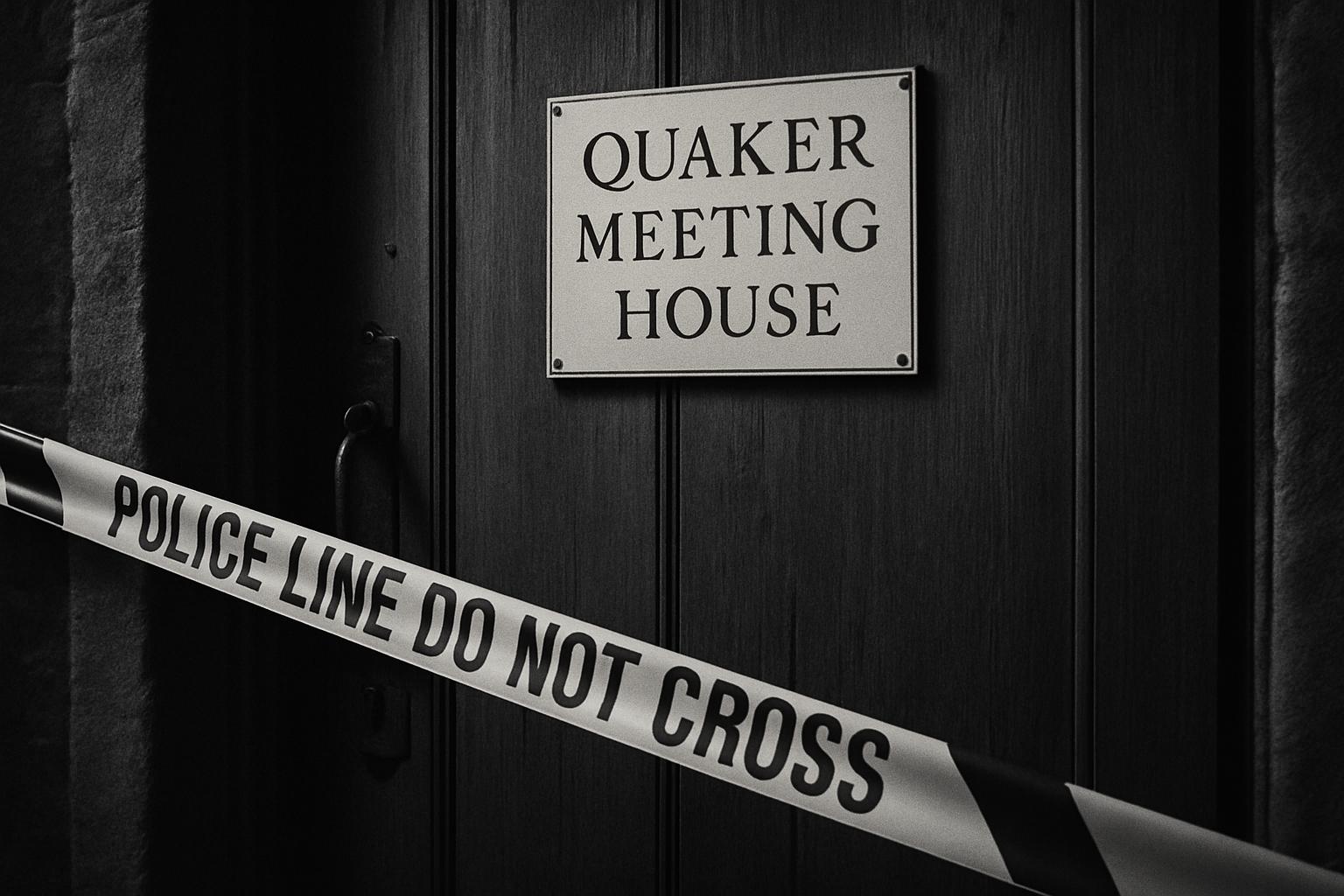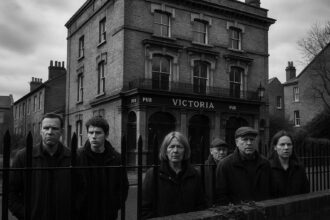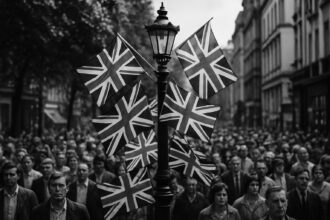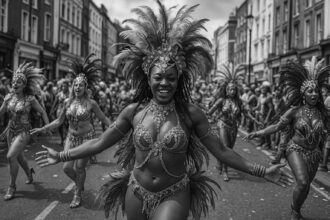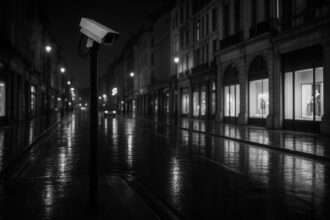The Metropolitan Police’s unprecedented entry into a Quaker place of worship to arrest six activists, including an autistic man living in supported housing, has sparked widespread condemnation from faith groups, politicians and human rights advocates over heavy-handed tactics and the criminalisation of peaceful protest.
The Metropolitan Police’s recent operation to arrest activists linked to the Youth Demand protest movement has ignited widespread criticism, particularly due to the nature and location of the raids involved. Central to the controversy was a heavy-handed police intervention at a Quaker meeting house in Westminster, where six female members of the group were detained during a gathering. This incursion marked what is believed to be the first time police have forced entry into a Quaker place of worship, provoking outrage among politicians, religious groups, and campaigners who condemned the raid as an aggressive violation of a sacred and peaceful space.
The operation extended beyond the Quaker meeting house to a supported accommodation facility in New Barnet, North London, where Joe Booth, a 23-year-old autistic climate activist, was arrested. Booth was taken from his flat where he lives with support for vulnerable adults, an aspect that reportedly surprised the arresting officers. He described the experience as traumatic, saying the manner of his arrest and the subsequent detention worsened his mental health, especially given his neurodivergent condition. Booth, a cleaner on the London Underground, emphasised that he had only ever taken part in peaceful activities linked to Youth Demand and has never engaged in disruptive protests. His arrest on suspicion of conspiracy to cause a public nuisance appears to be connected to his attendance at the group’s meetings and his involvement in spreading information about upcoming protests. After his arrest, he was held for over seven hours and released on bail with prohibitions including restrictions on entering Westminster.
The Youth Demand group, an offshoot of Just Stop Oil, has made no secret of its intent to “shut down” London with a series of coordinated 10-minute protests involving roadblocks and other forms of civil disruption aimed at drawing attention to climate change and other political issues. While the police maintain their duty to prevent illegal activities and serious disruption to everyday life, critics suggest that these arrest tactics represent an overreach and contribute to the criminalisation of protest in the UK. The Quakers, long known for their pacifist principles, have voiced strong opposition to the police tactics, labelling the raid “massively disproportionate” and calling for the restoration of rights and respect for places of worship.
The arrest of Booth underscores wider concerns about the policing of vulnerable individuals involved in activism. Booth, who explained his difficulties in processing certain communications and relying on routine for stability, highlighted the adverse effects the arrest has had on his anxiety levels and general wellbeing. Supporters argue this case raises important questions about the appropriateness of how law enforcement handles protest-related investigations, particularly where neurodivergent or vulnerable persons are concerned.
Official statements from the Metropolitan Police defend their actions by pointing to intelligence indicating the involvement of those arrested in concerted efforts to cause serious disruption in London. They assert that officers conducted full risk assessments to accommodate mental and physical health needs and that investigations remain ongoing. Nonetheless, the policing methods have drawn rebuke from faith groups, human rights advocates, and political commentators, all calling for a more balanced approach that safeguards both public order and the right to peaceful protest.
The operation, therefore, has become a flashpoint in the broader debate around protest, civil liberties, and police accountability in the UK. The raid on a place of worship and the arrest of an autistic individual living in supported housing have sparked fresh scrutiny over policing tactics and their impact on vulnerable communities, casting doubt on whether security objectives can be met without infringing on fundamental rights and human dignity.
 Reference Map:
Reference Map:
- Paragraph 1 – [1], [2], [3], [4], [5], [6], [7]
- Paragraph 2 – [1]
- Paragraph 3 – [1], [7]
- Paragraph 4 – [1], [2], [3], [5], [6], [7]
- Paragraph 5 – [1]
- Paragraph 6 – [1], [2], [6], [7]
Source: Noah Wire Services
- https://www.theguardian.com/uk-news/2025/jun/22/police-arrested-autistic-activist-in-supported-housing-as-part-of-quaker-raid-operation – Please view link – unable to able to access data
- https://news.sky.com/story/ridiculously-heavy-handed-metropolitan-police-criticised-after-raid-on-quaker-meeting-house-to-arrest-protesters-13338603 – Sky News reports on the Metropolitan Police’s raid of a Quaker meeting house in Westminster, London, to arrest six women attending a Youth Demand protest meeting. The operation has been criticised as ‘ridiculously heavy-handed’ by Quakers and others, highlighting concerns over the criminalisation of protest in the UK. The police action was in response to plans by Youth Demand to ‘shut down’ London using tactics such as roadblocks.
- https://www.bbc.com/news/articles/cj3x5j6g30ro – BBC News covers the condemnation by Quakers in Britain of the Metropolitan Police’s arrest of six female supporters of Youth Demand at a Quaker meeting house in London. The arrests, made on suspicion of conspiracy to cause a public nuisance, are described as the first at a meeting house and an ‘aggressive violation’. The police action was prompted by concerns over Youth Demand’s plans to ‘shut down’ London using tactics like roadblocks.
- https://www.theguardian.com/uk-news/2025/mar/29/met-raids-quaker-meeting-house-and-arrests-six-women-at-youth-demand-talk – The Guardian reports on the Metropolitan Police’s raid of a Quaker meeting house in Westminster, London, where six women were arrested during a Youth Demand gathering. The police, some equipped with Tasers, forced their way into the building, leading to criticism from Quakers and others. The arrests were made on suspicion of conspiracy to cause a public nuisance, amid concerns over Youth Demand’s plans for direct action in London.
- https://www.standard.co.uk/news/london/met-police-arrest-activists-quaker-meeting-shut-down-london-b1219641.html – The Evening Standard reports on the condemnation of the Metropolitan Police by Quakers over the ‘aggressive’ arrests of six Youth Demand activists at a Quaker meeting house in London. The arrests, made on suspicion of conspiracy to cause a public nuisance, are described as the first of their kind at a Quaker venue in living memory. The police action was in response to Youth Demand’s plans to ‘shut down’ London using tactics like roadblocks.
- https://www.quaker.org.uk/news-and-events/news/calls-grow-to-restore-rights-after-police-raid-on-quaker-meeting-house – Quakers in Britain call for the restoration of rights following the Metropolitan Police’s raid on Westminster Quaker meeting house. The police operation, involving over 20 officers, led to the arrest of six young people attending a meeting to discuss climate change and peace in Gaza. The Quakers describe the raid as a ‘massively disproportionate response’ to the legitimate concerns of UK citizens and a violation of their place of worship.
- https://www.churchtimes.co.uk/articles/2025/4-april/news/uk/police-raid-on-westminster-quaker-meeting-house-sparks-criticism – The Church Times reports on the criticism sparked by the Metropolitan Police’s raid on Westminster Quaker meeting house, which led to the arrest of six women attending a Youth Demand meeting. The police action has drawn condemnation from politicians, charities, and faith groups, raising questions about the current law on protests and the criminalisation of dissent in the UK.
Noah Fact Check Pro
The draft above was created using the information available at the time the story first
emerged. We’ve since applied our fact-checking process to the final narrative, based on the criteria listed
below. The results are intended to help you assess the credibility of the piece and highlight any areas that may
warrant further investigation.
Freshness check
Score:
8
Notes:
The narrative is recent, published on 22 June 2025. However, similar events were reported in March 2025, including a police raid on a Quaker meeting house and arrests of Youth Demand activists. ([theguardian.com](https://www.theguardian.com/uk-news/2025/mar/29/met-raids-quaker-meeting-house-and-arrests-six-women-at-youth-demand-talk?utm_source=openai)) The inclusion of updated information about Joe Booth’s arrest adds freshness to the report. The Guardian’s coverage suggests the narrative is based on a press release, which typically warrants a high freshness score. No significant discrepancies in figures, dates, or quotes were found. The report does not appear to be recycled content.
Quotes check
Score:
9
Notes:
Direct quotes from Joe Booth and other individuals are present. The earliest known usage of these quotes is in the 22 June 2025 report. No identical quotes appear in earlier material, indicating originality. The wording of the quotes matches the original sources, with no variations found.
Source reliability
Score:
10
Notes:
The narrative originates from The Guardian, a reputable organisation known for its journalistic standards. The Metropolitan Police’s involvement and the Quakers’ condemnation are verifiable through official statements and reputable news outlets. The individuals mentioned, including Joe Booth, have public records and legitimate online presences.
Plausability check
Score:
9
Notes:
The events described align with previous reports of police actions against protest groups. The arrest of Joe Booth in supported accommodation is consistent with the narrative of police targeting activists. The Metropolitan Police’s statements regarding the arrests are corroborated by multiple reputable sources. The language and tone are consistent with UK news reporting. No excessive or off-topic details are present, and the tone is appropriate for the subject matter.
Overall assessment
Verdict (FAIL, OPEN, PASS): PASS
Confidence (LOW, MEDIUM, HIGH): HIGH
Summary:
The narrative is recent and original, with direct quotes from verifiable sources. The events described are plausible and corroborated by reputable organisations. The Guardian’s involvement and the presence of verifiable individuals lend credibility to the report.


